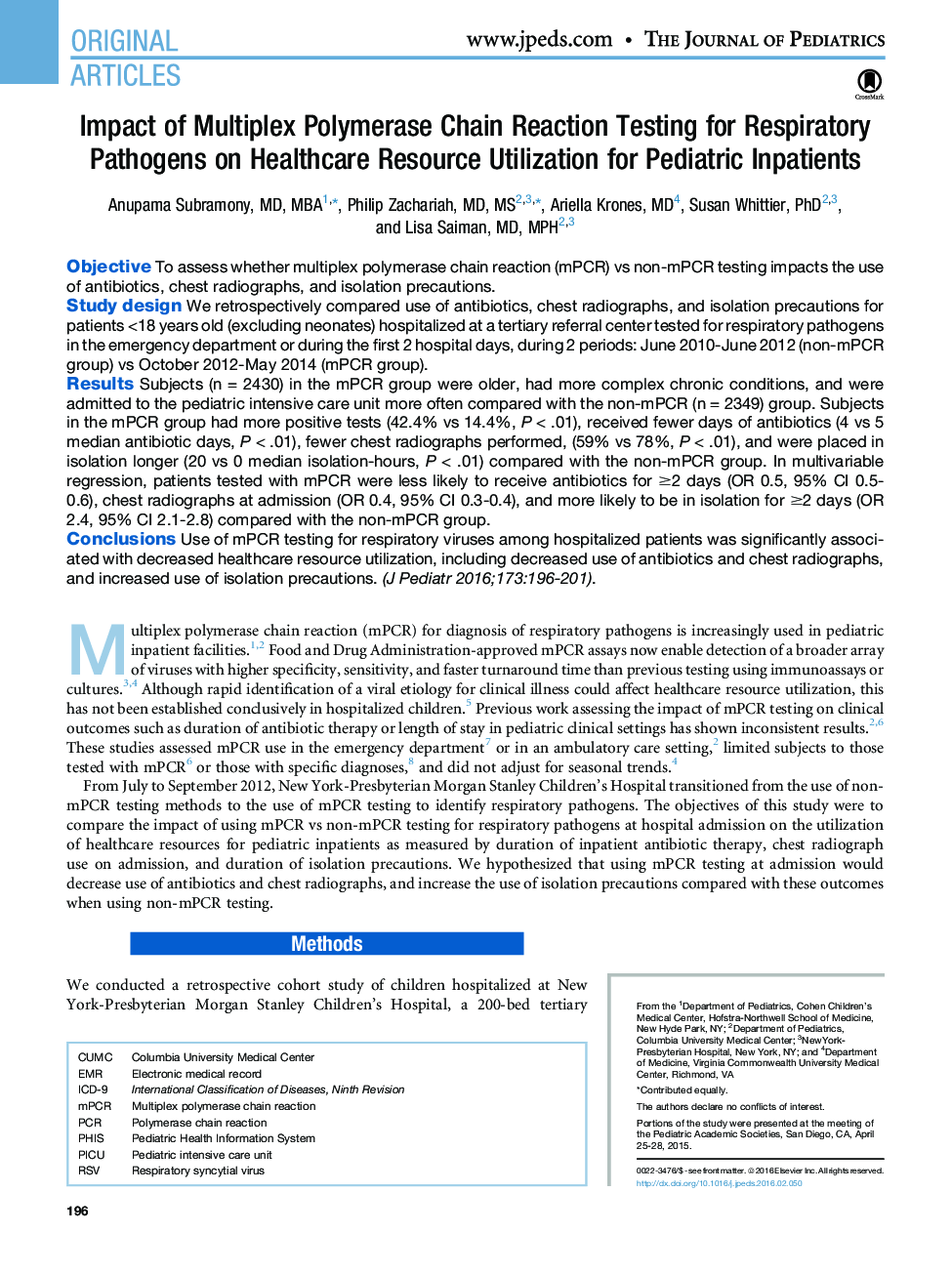| Article ID | Journal | Published Year | Pages | File Type |
|---|---|---|---|---|
| 6219555 | The Journal of Pediatrics | 2016 | 8 Pages |
ObjectiveTo assess whether multiplex polymerase chain reaction (mPCR) vs non-mPCR testing impacts the use of antibiotics, chest radiographs, and isolation precautions.Study designWe retrospectively compared use of antibiotics, chest radiographs, and isolation precautions for patients <18 years old (excluding neonates) hospitalized at a tertiary referral center tested for respiratory pathogens in the emergency department or during the first 2 hospital days, during 2 periods: June 2010-June 2012 (non-mPCR group) vs October 2012-May 2014 (mPCR group).ResultsSubjects (n = 2430) in the mPCR group were older, had more complex chronic conditions, and were admitted to the pediatric intensive care unit more often compared with the non-mPCR (n = 2349) group. Subjects in the mPCR group had more positive tests (42.4% vs 14.4%, P < .01), received fewer days of antibiotics (4 vs 5 median antibiotic days, P < .01), fewer chest radiographs performed, (59% vs 78%, P < .01), and were placed in isolation longer (20 vs 0 median isolation-hours, P < .01) compared with the non-mPCR group. In multivariable regression, patients tested with mPCR were less likely to receive antibiotics for â¥2 days (OR 0.5, 95% CI 0.5-0.6), chest radiographs at admission (OR 0.4, 95% CI 0.3-0.4), and more likely to be in isolation for â¥2 days (OR 2.4, 95% CI 2.1-2.8) compared with the non-mPCR group.ConclusionsUse of mPCR testing for respiratory viruses among hospitalized patients was significantly associated with decreased healthcare resource utilization, including decreased use of antibiotics and chest radiographs, and increased use of isolation precautions.
